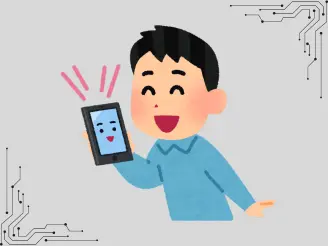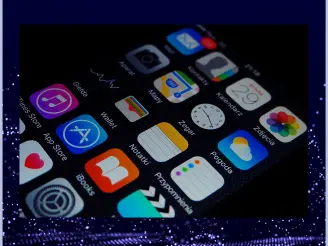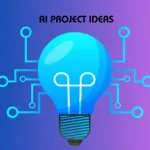In the world of mobile innovation, where everything is subject to rapid change, mobile users are looking forward to the launch of iOS 18.
iOS 18 will change the iOS ecosystem as we know it, with plenty of new features and capabilities that will be made possible with artificial intelligence (AI).
From the enhanced camera tools, augmented reality, and personalization, iOS 18 will deliver unparalleled AI-driven experience for users.
So follow us through a journey of exploring the disruptive potential of the upcoming iOS 18 version, by looking into what’s expected of its features and AI.
Table of Contents
Enhanced Siri Intelligence

Apple’s virtual assistant, Siri, is probably going to get better in contextual awareness and natural language understanding. This could make it possible for Siri to respond to inquiries more precisely, more effectively anticipate user needs, and make proactive recommendations based on user behavior and preferences.
iOS 18’s enhanced Siri may result in notable advancements in several areas, including
Natural Language Understanding (NLU)
Siri’s ability to understand and respond to user’s natural language commands can be significantly improved. Using advanced machine learning algorithms, Siri can understand context, nuances, and regional language colloquialisms to become more conversational and intuitive to interact with.
Proactive Suggestions
Siri can use AI to offer more on-the-spot suggestions based on user preference and behavior. Giving proactive reminders, suggesting relevant apps or content, or offering useful information based on user location, schedule, or past conversations can help Siri, for example, predict what the user might need.
Personalized Answers
A enhanced Siri can offer more answers tailored to each individual user. By analyzing user data and preferences, Siri can offer more relevant and useful tips, recommendations, and assistance. Reminders, calendar events, news, and other elements within Siri’s vast feature set could all be customized this way.
Better Multitasking
Siri’s integration with other iOS functions and apps should be refined to allow for more seamless multitasking. A user should be able to easily switch between engaging with Siri and other activities, for example, without disrupting their workflow. Leveraging third-party apps, Siri can also enable consumers to complete tasks more efficiently or without using their hands.
Increased Knowledge Base
Siri’s knowledge base can be expanded and regularly updated to provide more accurate and up-to-date information on a wide range of topics. By using AI-driven data analysis and natural language processing, Siri can answer more extended questions and thereby become an even more trusted source of information and assistance.
Read also: How Nothing Ear and ChatGPT Integration Enhances Your Audio Experience
Advanced Photo Management
AI-driven image analysis and recognition could enhance the function of the Photos app in iOS 18. Features that help users organize and manage photographs according to their content might be beneficial for users. Examples of such features include content-based image tagging (i.e. automatic image labeling), automatic object recognition, and scene detection in photographs.
Here are more features to expect under Photo Management
AI-Driven Curation
iOS 18 could employ artificial intelligence (AI) algorithms to recognize images and understand their visual content automatically. This means that images could be sorted into albums or folders based on multiple criteria such as time, location, people, objects, activities and more. To help consumers better curate their image libraries, AI could also detect screenshots, blurry images and duplicate images.
Intelligent Search
iOS 18 could come with intelligent search capabilities that allow users to easily and efficiently find specific photographs due to the AI-driven image curation. Users can choose to search images by typing in criteria such as location, date range, people, objects or events, or use natural language queries. The AI-enabled search could also return accurate results for vague or ambiguous queries, thereby helping users save time and effort when looking for the relevant images.
Contextual Insights
iOS 18 can leverage the user’s photo library for recommendations and provide contextual insights. For example, it can highlight meaningful events, accomplishments or memories based on trends identified in the user’s photo library. The system could also suggest options to create digital photo books, slideshows or albums based on context deduced from the user’s pictures.
Automatic Photo Editing and Enhancement
AI-based photo libraries may include auto photo editing and enhancement options that enhance image quality without any human intervention. For example, the system could eliminate red eye, blemishes or other imperfections, as well as adjust brightness, contrast, color and sharpness. Users can choose to have these edits applied automatically or manually, depending on their preferences.
App and Service Integration
To provide seamless experiences across the iOS ecosystem, the advanced image handling capabilities of iOS 18 will be able to integrate with other apps and services. For example, users can quickly and easily share images from the Photos app with friends and family using messaging apps, social media platforms or cloud storage apps. The iOS images app enabled users to view images stored in third-party apps or services, simplifying the process of managing all of their picture collections in one place.
Smarter Notifications
Thanks to the AI technology, the Notification Center in iOS 18 is expected to receive significant improvements allowing users to receive smarter and more contextual messages.
Here is a comprehensive look at what users can expect from the new Notification Center:
Contextual Relevance
iOS 18 notifications will be increasingly tailored to each user based on their preferences, habits, and current context leveraging AI based contextual intelligence. The algorithm will consider factors like user behavior, app usage pattern, location, time of day etc. to determine which notifications to display and where, depending on what is most relevant to the user.
Prioritization and Filtering
iOS 18 will include advanced prioritization and filtering algorithms to rank notifications based on their importance and relevance. To intelligently prioritize notifications, the platform will consider user inputs and feedback. This ensures that top priority notifications are surfaced accordingly while lower priority notifications are bundled or muted.
Notification Summaries
To alleviate some notification overload, iOS 18 could introduce notification summaries that bundle and deliver less important notifications at scheduled times throughout the day. Users can specify scenarios when they would like to receive these summaries either at a certain time of the day or based on certain conditions. This can help users stay on top of things and avoid distractions.
Intelligent notifications
iOS 18 will use intelligent notifications to provide dynamic actions that better align with user intent and context. Without unlocking their iPhones, users will be able to respond to messages, complete tasks, or open appropriate apps from the lock screen or Notification Center.
Predictive Suggestions
iOS 18 will send predictive suggestions or reminders to users at just the right time by analyzing historical data and studying user behavior. For instance, it could notify users to re-order items when they are running low or suggest setting a reminder for an event mentioned in a message.
Adaptive Quiet Hours
iOS 18 might introduce automatically adjusting quiet hours based on user activities and preferences. The system will learn when you are usually at work, home, gym, etc. and adjust notification delivery accordingly. You get uninterrupted time to focus when needed without missing important notifications.
AI-powered Keyboard

This smartness that AI technology will bring along is also expected to make the notifications smarter in the iOS 18 Notification Center. The notifications will be contextually relevant to the user so that they are more useful.
Here is an in-depth preview of what the users can expect from the new Notification Center:
Better Autocorrection
Keyboard autocorrect will be smarter and more contextual using AI-based autocorrection algorithms. The AI-based keyboard will offer higher accuracy in autocorrections to minimize errors and enhance overall typing experience. It will consider the user’s typing pattern, commonly used words and phrases, and contextual elements for autocorrecting words.
Predictive text
The AI-based keyboard will predict next words on the fly and suggest options to users based on their typing behavior. The system will learn from user behavior, old messages and use machine learning algorithms to speed up typing experience.
Context-Aware Suggestions
AI-powered keyboard will suggest context-aware options based on the conversation or work the user is engaged in. The keyboard suggestions will be more specific than just predicting words. For example, when user talks about dinner plans, based on conversation context and user selection, the keyboard can suggest restaurant names, food categories, or places near to them.
Intelligent Emoji Suggestions
Artificial intelligence algorithms will enable the keyboard to offer smarter emoji suggestions based on the content of the message and user’s tone or personality. Emoji reactions help in better communication in certain contexts which the system can detect by analyzing messages as text and suggest emoji responses.
Language Understanding
The AI-powered keyboard will understand and respond to user queries in a smarter manner using its advanced language comprehension capabilities. When users compose questions directly from the keyboard or use voice recognition based voice-to-text input method, they can expect more relevant and accurate responses.
Personalization
The AI-powered keyboard will learn user preferences, behavior, and typing pattern over time to offer a better and natural typing experience in the future. The keyboard will be customized to each user’s writing style, vocabulary, and language preferenes for a comfortable typing experience.
Deeper Integration with HomeKit

Users can look forward to a significant enhancement and extension of the HomeKit integration in iOS 18 which will enable users to create more sophisticated automations and control options for their smart home devices.
Here is a summary of what could be part of the extended integration:
Complex Automation Scenarios
iOS 18 could enable users to create more complex automation scenarios and routines due to the deeper HomeKit integration. Users may allow the time of day, sensor data, or status of other devices in the home to trigger complex sequences of actions. This added flexibility and configurability would be a benefit to users when it comes to managing their smart home environments.
Advanced Device Control
iOS 18 could allow customers to more easily access and control their smart home devices by simplifying the command workflow through the Home app. This could include improved navigation, revised controls for adjusting device parameters and settings, and redesigned workflows. Some users may also benefit from expanded device support, allowing for easy integration with a larger range of smart home devices.
Smart Statistics and Tips
iOS 18 could allow consumers to gain smart statistics and tips for optimizing their smart home experience through a deeper HomeKit integration. By analyzing trends, energy consumption, and user preferences, the system could offer suggestions on device usage, energy savings, and optimizing the home automation experience.
Interoperability with Other Apple Services
Siri, Shortcuts, iCloud, and other HomeKit ecosystems and platforms may be further integrated with iOS 18. With this deeper integration, users will be able to use voice commands to control their smart home devices, create personalized automation routines with Shortcuts, and iCloud allowing users to synchronize their smart home setup across multiple devices.
Interoperability with Other Accessories
iOS 18 could allow Apple to include more third-party smart home accessories and devices to the HomeKit ecosystem. This will ensure smooth integration and a more streamlined user experience by allowing users more choice when it comes to compatible devices for their smart home.
Enhanced Health and Fitness Tracking
One area where users may experience a significant change is in the health and fitness tracking features that may come to iOS 18. Apple’s AI-driven insights will offer users detailed and personalized analysis along with appropriate suggestions.
Here is what we can expect to see in this enhanced feature:
Personalized Health Insights
iOS 18 can possibly allow consumers to have personalized health insights based on their individual health data, activity and goals through the use of AI-enabled algorithms. By monitoring and measuring many variables such as heart rate, sleep quality and quantity, exercise frequency, and food intake, the technology has the potential to offer customized recommendations that can improve overall fitness and wellness.
Advanced Activity Tracking
iOS 18 can possibly allow further advanced activity tracking mechanisms for customers to more accurately and precisely monitor their exercise regimes. This can include real-time feedback on metrics such as pace, distance and calories burned, as well as auto-workout detection and enhanced activity recognition. AI-driven coaching and encouragement can also be extended to users to maintain their exercise and fitness goals.
Health Trends and Patterns
iOS 18 AI-driven fitness and health tracking can possibly allow users to identify trends and patterns in their health metrics over time. Historical data can help the system to help users monitor progress towards their goals, obtain greater insights into health trends, and discover areas for improvement by evaluating past data and identifying correlations between different variables.
Nutritional Guidance
iOS 18 can possibly allow for enhanced nutritional guidance features that allow consumers to obtain customized guidance on maintaining a healthy diet. Meal plans which are based on dietary preferences and nutritional requirements can also include data on food items, portion sizes and timing of meals. Users can also be alerted to possible overages or inadequacies in their diet, which can in turn allow them to make more informed choices.
Integration with Health Services
Apple can possibly enhance its connectivity options with health platforms and services with iOS 18, which can allow users to seamlessly transmit their health data with doctors, personal trainers and other relevant parties. Better coordination and communication between users and their healthcare teams can also be facilitated by this integration, which can allow users and healthcare professionals to adopt more collaborative and proactive approaches towards managing fitness and health.
Improved Battery Life Optimization
iOS 18 users might witness enhanced power management, thanks to the inclusion of AI-based methods. Such algorithms would run behind-the-scenes and intelligently manage background processes, app activities, system resource usage, and other aspects of the device operations to optimize battery consumption.
How users might get benefited from this enhanced battery management from the below-given quick look:
Background Process Optimization
One of the prominent areas where artificial intelligence can help in battery saving is managing background processes effectively so that the important tasks get the necessary resources and the unnecessary tasks are throttled or stopped to save battery life. iOS 18 can deploy machine learning algorithms to prioritize the background tasks based on their importance and resource needs.
App Activity Monitoring
AI-powered energy management in iOS 18 can monitor app activity more aggressively to detect the apps and processes which are guzzling the power. The system can analyze the resource usage patterns in real-time and based on the app usage patterns, it can detect the apps which are excessively taxing the battery and take appropriate actions to mitigate the adverse impact on the battery life.
System Resource Allocation
Another aspect of AI-powered battery management is the intelligent allocation of system resources such as CPU, GPU, and memory. Without compromising on performance, iOS 18 power economy can be managed effectively by allocating system resources dynamically based on the user activity, app needs, and device temperature. The adaptive resource management framework can ensure battery optimization while maintaining the device performance.
Predictive Power Management
iOS 18 can deploy predictive analytics to learn the user behavior patterns and tweak the power management strategies accordingly. The system can make necessary changes to the screen brightness, network connectivity, background processes, etc., to ensure battery optimization and consistent device performance through-out the day by learning from the past behavior and environmental factors.
Customizable Battery Settings
iOS 18 can deploy customizable battery settings to allow the users to choose the power management strategies based on their needs and priorities to get the desired battery life from their smartphone. The users can be provided with options to choose the battery saving modes for different usage scenarios and they can be allowed to trade-off between performance and battery life or choose either performance or battery savings.
Enhanced Security and Privacy
Strong privacy and security iOS 18 may utilize AI tech to give customers control over their data and strong assurance against assailants.
How would AI help operating system security and privacy be analyzed below:
Advanced Threat Detection
Threat detection capabilities can be enhanced with AI-powered algorithms to help the system detect and respond to a wider range of cybersecurity attacks more successfully. Device and network behavior might be continuously monitored by machine learning models that were previously trained on vast datasets of identified threats in search of suspicious activity indicative of malware, phishing, or other attacks. With advanced threat detection and response, iOS 18 could assist users in more effectively withstanding malicious actions and security incidents.
Behavioral Biometrics
AI-driven behavioral biometrics could enhance device login mechanisms by verifying user identity through the analysis of patterns of their own behavior. AI algorithms in iOS 18 could scrutinize unique behavioral traits such as speech patterns, typing rhythm, and touchscreen gestures instead of relying on traditional login methods such as passwords or fingerprint scans. This authentication method adds an additional protective layer that’s much harder for attackers to mimic or exceed with malicious intent.
Privacy-Preserving AI
iOS 18 might leverage privacy-preserving AI algorithms to provide advanced features without compromising user privacy. AI models can be trained and executed without sensitive data ever being transmitted to remote servers. Thanks to federated learning and on-device processing techniques, the risk of unauthorized access or data leaks is substantially lowered by ensuring user data remains encrypted and protected on iOS devices. With privacy placed front-and-center for AI-powered features, iOS 18 allows users to enjoy the benefits of next-level capabilities without sacrificing control over their data.
Finer Data Controls
AI can grant users finer control over their data by providing insights into how apps and services access, collect, and share personal information. iOS 18 might integrate AI-driven privacy features that deliver detailed insights into app permissions and data flow, allowing users to understand how their data is collected, distributed, and accessed by unrelated apps and services. With iOS 18, users are put in charge of their privacy, which boosts the platform’s accountability and transparency in data processing workflows and empowers them to make informed decisions. This, in turn, enhances user confidence and trust in the platform.
Adaptive Security Measures
AI-powered adaptive security systems can dynamically adjust security settings and protocols to align with evolving threat landscapes and user behavior patterns. iOS 18 might leverage machine learning algorithms to analyze user feedback, historical security events, and emerging threats in order to continuously optimize security configurations and workflows without negatively impacting the user experience. This agile approach helps ensure iOS devices remain resilient to evolving cybersecurity threats.
AI-Enhanced Camera Functions

The use of artificial intelligence (AI) in the iOS 18 Camera app brings a number of advanced capabilities that change the photography and video shooting on Apple devices.
Let’s have a look at the capabilities of the AI-powered camera
Intelligent Scene identification
The Camera app can instantly assess the scene’s composition and modify camera settings based on AI-powered scene identification. The camera smartly adjusts exposure, white balance, and other settings to get the best possible photo, whether it’s a landscape, portrait, food, or low-light situation.
Automated Composition Suggestions
iOS 18’s AI algorithms can offer users automated composition recommendations to improve the way they frame their images. The Camera app may provide users with on-screen instructions or visual overlays to help them achieve better composition and balance in their images and movies by evaluating the scene and subject placement.
Real-time Photo Editing
The Camera app on iOS 18 now offers real-time photo editing capabilities thanks to AI-powered camera features. Intelligent editing features utilizing object identification and scene analysis allow users to erase defects, enhance colors, apply filters, and alter exposure.
Smart Focus and Tracking
To guarantee crisp, well-focused photos and videos, the iOS 18 Camera app makes use of AI-driven focus and tracking technologies. Sophisticated algorithms can recognize and follow moving objects, minimizing blur or distortion and maintaining focus during the capture process.
Improved Low-light Performance
By intelligently processing image data to minimize noise and improve clarity in dimly lit areas, AI-based methods boost low-light performance. Without the need of extra lighting equipment, users may take crisper, brighter pictures, and videos even in dimly lit environments.
Adaptive HDR
The Camera app on iOS 18 makes use of artificial intelligence (AI) to intelligently modify the HDR (High Dynamic Range) settings according to the lighting and contrast of the scene. This guarantees the preservation of both shadow and highlight details, producing photographs with a better dynamic range that is balanced and natural-looking.
Particular to scene Optimization
iOS 18’s AI-enhanced camera features optimize color rendering and picture processing depending on the kind of scenario being shot. The Camera app intelligently modifies settings to get the best possible results for any situation, whether it’s a macro, portrait, or landscape image.
Augmented Reality Enhancements
With advancements in ARKit, AR experiences in general are going to get a massive boost with the iOS 18.
Let’s have a look at how users can expect augmented reality to become better:
Improved Object Recognition and Tracking
With enhanced object recognition and tracking features, iOS 18’s ARKit lets virtual objects identify and respond to their physical surroundings. Hence, users would be able to notice virtual objects placed and manipulated in the real world in much better accuracy.
Deeper Environmental Understanding
iOS 18 utilizes artificial intelligence and machine learning for augmented reality use-cases. It offers a deeper environmental understanding. The ARKit framework offers a much better scope to inspect and learn the user’s condition of affairs including surfaces, lighting conditions and even the spatial measurements.
Spatial Audio
iOS 18 allows developers to include spatial audio for augmented reality experiences. With the integration of spatial audio, users will be able to localize virtual sound in a spatial field that’s part of the augmented reality experience. Spatial audio offers a sense of directionality and adds depth to the overall experience.
Realistic Physics Simulation
iOS 18 upgrades ARKit to support realistic physics simulations including interactions between the virtual and the real objects. Also, the new framework will allow item collisions, gravity simulations, surface reflections and much more. Such interactive physics will make the AR content more lively and engaging for the users.
Face and Body Detection
Enhanced face and body tracking enables iOS 18 to identify faces and bodies within the augmented reality view of the application. Users may even trace facial expressions or body actions of their avatars in a much accurate manner. This offers new ways to create engaging augmented reality experiences including animated avatars, virtual try-outs for clothes, accessories and much more including exciting face filters.
More Content Creation Tools
With iOS 18, augmented reality content creation has become easier and much more comprehensive for a number of uses including development.
This is because the new iOS version offers more features for developers to create and implement AR experiences. Developers can now utilize a number of advanced tools that make augmented reality content development much more engaging and easier.
Moreover, the process of crafting 3D assets as well has become straightforward with iOS 18 including easy-to-use scene editing tools.
Deep Integration with Machine Learning Models
iOS 18 offers deep integration with machine learning models for intelligently adding features to augmented reality experiences.
Machine learning elements offer augmented reality (AR) apps with respect to contextual awareness and smart responsive behaviors.
Advanced Personalization

From detecting objects in the real world to natural language processing, iOS 18 allows users to obtain experiences that are not just personalized but also context-aware.
Thanks to complex algorithms, AI-driven personalization in iOS 18 can totally revolutionize user experience by serving customized experiences to each user based on their habits, preferences, and context of usage.
This may manifest in the ways below on different blocks of the operating system
Customized App Store Suggestions
iOS 18 could suggest apps to users based on their previous usage statistics, interaction rate etc. It could analyze which apps are used most commonly at which point of the day or in what condition, to suggest appropriate apps for users to download according to their interests and needs.This would make discovering new apps easier for the users
Location and Context aware Notifications
Users might be able to receive location and context aware notifications with the help of sophisticated AI algorithms in iOS 18.For instance, the system might learn and prioritize notifications to ensure that relevant information is communicated at the optimal time to the user. It could suggest notifications based on the user’s current location, calendar events and previous app usage etc.Only actionable and relevant notifications help the users be more productive in less time.
Adaptive User Interfaces
iOS 18 may bring in user interfaces that dynamically change according to the preferences and actions of each user. For example, the home screen, control center, and widgets may change over time to better represent the functions and apps that the user uses most frequently. This customization prioritizes the most essential controls and materials, which improves usability and efficiency.
Intelligent Content Suggestions
iOS 18 may make use of AI to provide tailored content suggestions for several integrated apps, including the App Store, Apple News, and Apple Music. The system could improve the user’s overall experience of discovering and consuming information by curating content based on the user’s interests and tastes by examining the user’s reading habits, listening preferences, and app usage history.
Conclusion
These are speculative features, but they illustrate how AI integration could potentially enhance various aspects of the iOS ecosystem in future updates.






Hello aree using WordPress for your site platform?
I’m new to the blog worldd but I’m trying to get started and seet up
my own. Do you need any coding knowledge to make your own blog?
Any help would bbe really appreciated! https://Lvivforum.PP.Ua/
Hello are using WordPress for your ste platform? I’m new to the blog world but I’m trying to gget started annd set uup
my own. Do you need any coding knowledge to make your own blog?
Any help would be really appreciated! https://Lvivforum.PP.Ua/